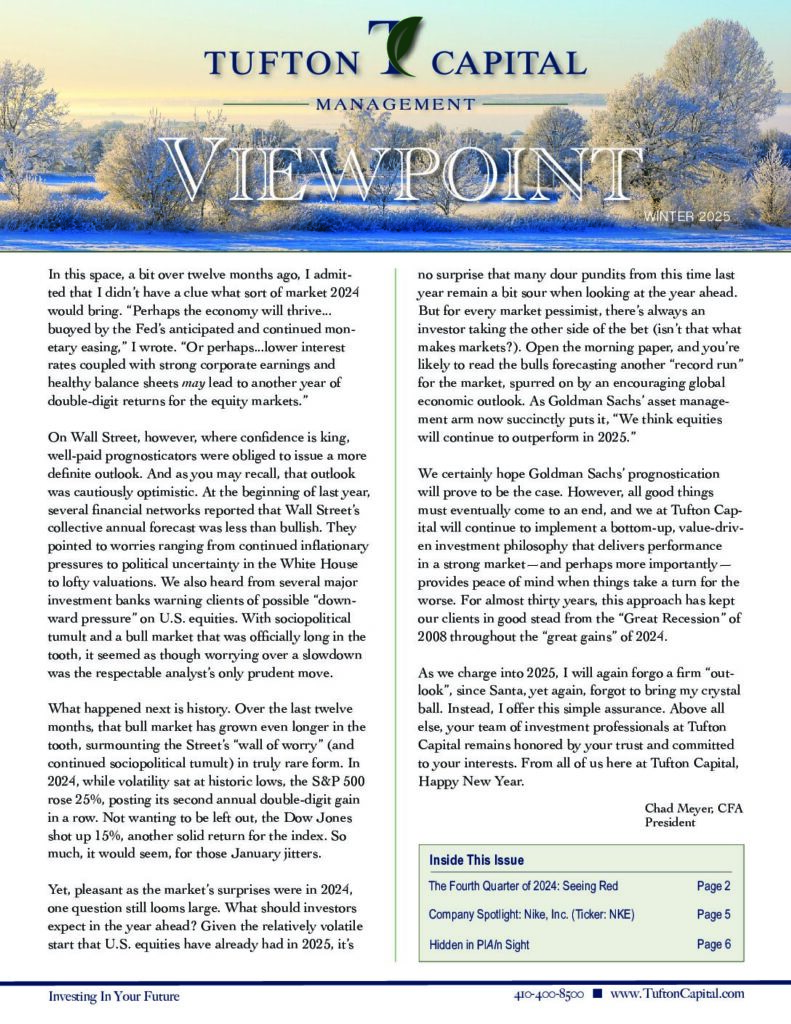2008 Q3 | So now what do we do?
 Fear and greed drive markets. In Jim’s letter, he explains how we got to where we are so quickly. But to summarize in a word, it was greed. Greed was everywhere, not just on Wall Street, as the media would like you to think. Greed pushed the price of oil to nearly $150 per barrel. Greed convinced speculators to buy homes they intended on flipping. Greed motivated some home-buyers to “fudge” their mortgage applications. Greed convinced mortgage brokers that credit worthiness really did not matter. Greed inspired banks and brokers to securitize these mortgages. And greed produced the over-leveraged balance sheets loaded with these securities.
Fear and greed drive markets. In Jim’s letter, he explains how we got to where we are so quickly. But to summarize in a word, it was greed. Greed was everywhere, not just on Wall Street, as the media would like you to think. Greed pushed the price of oil to nearly $150 per barrel. Greed convinced speculators to buy homes they intended on flipping. Greed motivated some home-buyers to “fudge” their mortgage applications. Greed convinced mortgage brokers that credit worthiness really did not matter. Greed inspired banks and brokers to securitize these mortgages. And greed produced the over-leveraged balance sheets loaded with these securities.
Now, fear has taken over. Fear forced Bear Stearns into the arms of JP Morgan. Fear brought on the nationalization of Fannie Mae and Freddie Mac. Fear drove AIG, the world’s largest insurer, to the brink of bankruptcy. Fear seized up the credit markets. Fear forced Goldman Sachs and Morgan Stanley to give up their investment banking business models. Fear pummeled stock prices with record force as the volatility index spiked to record levels. Fear is everywhere.
From peak to trough, the stock market has dropped by more than 30% through the first week of October. For investors with a time horizon of anything longer than a year, getting out of the market at this point makes no sense. Most of the pain has been inflicted. Stocks could go lower but clearly a tremendous amount of bad news is already priced into the market. After all of this, a “professional investor” goes on national television and advises people to get out of the market? That should prove to be one of the all-time bad calls ever made. The bigger problem with getting investors out at the bottom is they most likely will not get back in when the market improves.
The market, as a whole, is very cheap and many individual companies are at fire-sale prices. Fear has completely gripped the market. Selling stocks, at this point, is not the answer. In fact, investors should be looking to buy stocks. There are world-class companies for sale at valuation multiples not seen in thirty years. As the old adage goes, “Buy low, sell high.” Investors should look to rebalance their portfolios. Given the market correction, that very well might mean taking some money out of bonds or cash and shifting to equities.
Now is not the time to let fear take over your investment decision-making. Long-term investors need to keep in mind that cycles exist and prices fluctuate. The difference between good investors and everyone else is their ability to take advantage of buying opportunities when they present themselves. It is no accident that Warren Buffet is investing his firm’s cash right now. We should all do the same.
—Dave Stepherson



